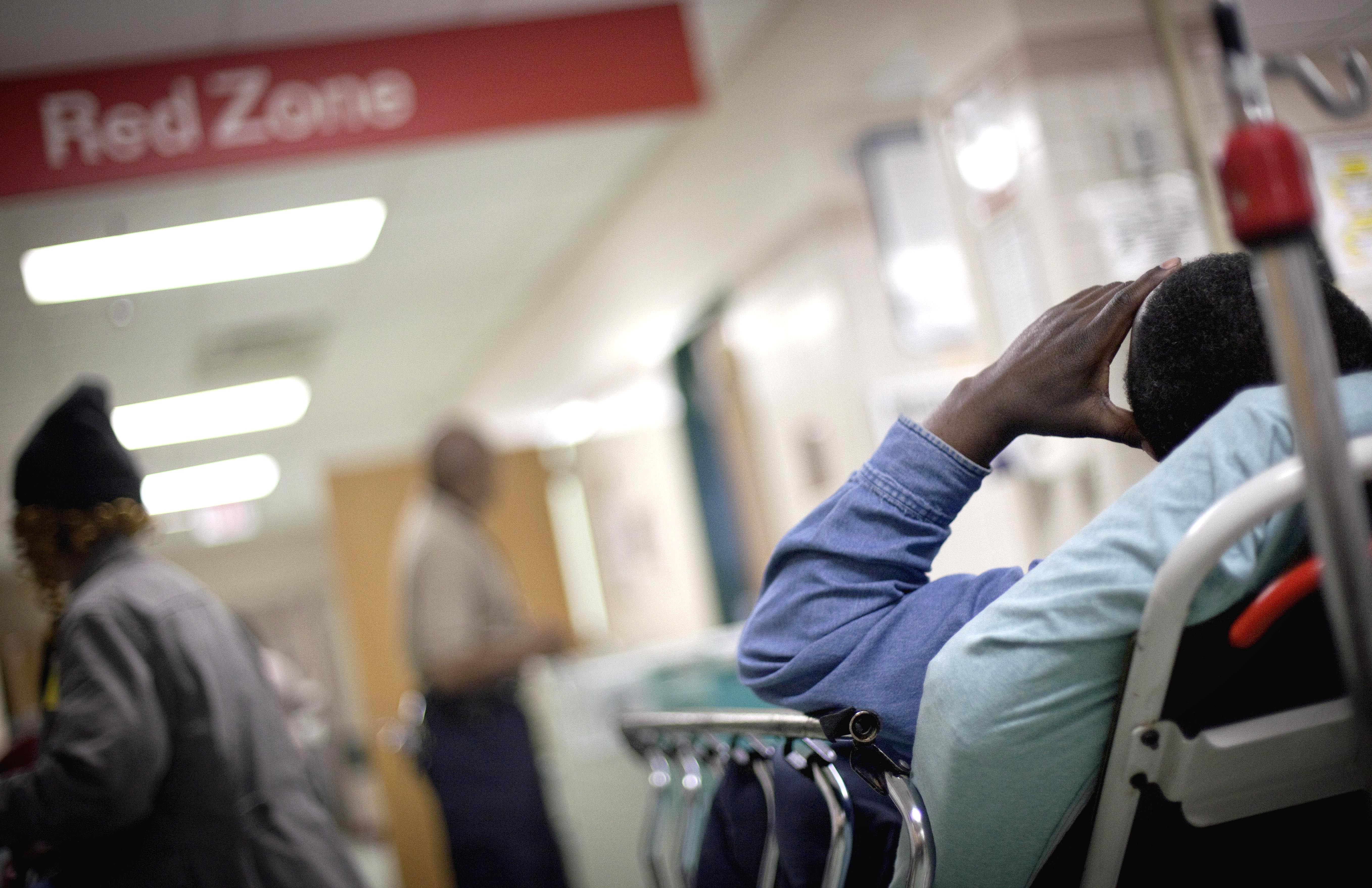Ultra conservatives might just save Medicaid
Conservative intransigence to the rescue?


House Republicans have taken direct aim at Medicaid with their American Health Care Act, which is up for a vote in the House on Thursday. They hate social insurance, and they especially hate any program that benefits the poor — not to mention the fact that programs that include the upper class, like Medicare and Social Security, are more politically risky to attack. So they're trying to slowly strangle Medicaid to death with the same "reform" plan they used on traditional welfare in 1996.
But Medicaid might have an unlikely savior: ultra-conservative House Republicans. They are enraged that TrumpCare doesn't cut enough, and so are thus far promising to vote against the policy. It might just stop TrumpCare from passing the House.
It's not widely known that Medicaid is the largest single insurer in the United States, with nearly 70 million people covered. It's a program for poor and near-poor people, and as such tends to be chronically underfunded and under-noticed — but there are a slew of such people in this grotesquely unequal country.
The Week
Escape your echo chamber. Get the facts behind the news, plus analysis from multiple perspectives.

Sign up for The Week's Free Newsletters
From our morning news briefing to a weekly Good News Newsletter, get the best of The Week delivered directly to your inbox.
From our morning news briefing to a weekly Good News Newsletter, get the best of The Week delivered directly to your inbox.
As my colleague Jeff Spross explains, the original iteration of TrumpCare would have first rolled back ObamaCare's expansion of Medicaid, then changed it from a defined-benefit to a defined-contribution program. That contribution would be indexed to medical inflation — but because the Medicaid population is sicker than average, its costs tend to rise faster than average, thus implying the bill would actually feature large and growing cuts when compared to current law. That adds up to $370 billion in costs shifted to the states over 10 years, which are virtually certain to end up being mostly cuts. And because Medicaid is already far and away the cheapest health insurance in the country, cuts are virtually certain to mean people being kicked off the program.
That wasn't enough for the so-called "Freedom Caucus" of ultra-conservative House Republicans, so Ryan offered them some more goodies, in the form of yet more savage punishment of poor people. An amendment would make it harder to enroll in Medicaid, allow work requirements and drug testing of enrollees, and allow states to take the federal contribution in the form of a block grant.
That finally recapitulates the basic formula of welfare reform: Block grant the money, cap the growth of spending, and add a ton of hurdles to enrollment to shed as many people from the rolls as possible. Then add some reverse-engineered rationalization about how poor people are all lazy drug addicts anyway who don't deserve insurance. (Making it an egregious double standard adds an extra frisson of Christian compassion — you never hear conservatives propose a drug test to claim rich people welfare like the mortgage interest deduction.)
Eventually, the program will be a cored-out shell of its former self. That's why TrumpCare is estimated to be worse than a clean repeal of ObamaCare in terms of the uninsured population.
A free daily email with the biggest news stories of the day – and the best features from TheWeek.com
But even that level of Cormac McCarthy-esque horror is apparently not enough for the ultras, who are still promising to vote against the bill because it's not cruel enough. President Trump has been whipping for the bill as well, all to no avail:
This is exactly what saved Social Security and Medicare during the negotiations over the debt ceiling in 2011. President Obama was ready to throw grandma into the North Sea so he could get the ego boost of a bipartisan Grand Bargain — but he couldn't stomach it without at least a few tax increases, and the ultras refused to accept a single nickel of additional taxation. Thus was grandma saved to bake cookies for another day.
Now, it's certainly possible the ultras are bluffing, and will eventually vote for the bill (where it will run into bigger problems in the Senate). But they are also notoriously terrible at vote-counting. It's anybody's guess what will happen.
It's also worth noting that Medicaid — while a godsend for millions — has its share of problems. But virtually all of them are caused by precisely the sort of policy-design elements Republicans are advocating be strengthened. It's already too miserly, it's too dispersed among the states, and it's got too many janky public-private elements. So if ultra-conservative intransigence saves Medicaid on Thursday, then future reform efforts should go in the opposite direction: Fully federalize the program, ease eligibility requirements, and combine it with Medicare as a first quick step toward a full single-payer system.
Ryan Cooper is a national correspondent at TheWeek.com. His work has appeared in the Washington Monthly, The New Republic, and the Washington Post.
-
 The most anticipated movies of 2026
The most anticipated movies of 2026The Week Recommends If the trailers are anything to go by, film buffs are in for a treat
-
 The biggest viral moments of 2025
The biggest viral moments of 2025In the Spotlight From the Coldplay concert kiss cam to a celebrity space mission, these are some of the craziest, and most unexpected, things to happen this year
-
 Environment breakthroughs of 2025
Environment breakthroughs of 2025In Depth Progress was made this year on carbon dioxide tracking, food waste upcycling, sodium batteries, microplastic monitoring and green concrete
-
 Bari Weiss’ ‘60 Minutes’ scandal is about more than one report
Bari Weiss’ ‘60 Minutes’ scandal is about more than one reportIN THE SPOTLIGHT By blocking an approved segment on a controversial prison holding US deportees in El Salvador, the editor-in-chief of CBS News has become the main story
-
 Has Zohran Mamdani shown the Democrats how to win again?
Has Zohran Mamdani shown the Democrats how to win again?Today’s Big Question New York City mayoral election touted as victory for left-wing populists but moderate centrist wins elsewhere present more complex path for Democratic Party
-
 Millions turn out for anti-Trump ‘No Kings’ rallies
Millions turn out for anti-Trump ‘No Kings’ ralliesSpeed Read An estimated 7 million people participated, 2 million more than at the first ‘No Kings’ protest in June
-
 Ghislaine Maxwell: angling for a Trump pardon
Ghislaine Maxwell: angling for a Trump pardonTalking Point Convicted sex trafficker's testimony could shed new light on president's links to Jeffrey Epstein
-
 The last words and final moments of 40 presidents
The last words and final moments of 40 presidentsThe Explainer Some are eloquent quotes worthy of the holders of the highest office in the nation, and others... aren't
-
 The JFK files: the truth at last?
The JFK files: the truth at last?In The Spotlight More than 64,000 previously classified documents relating the 1963 assassination of John F. Kennedy have been released by the Trump administration
-
 'Seriously, not literally': how should the world take Donald Trump?
'Seriously, not literally': how should the world take Donald Trump?Today's big question White House rhetoric and reality look likely to become increasingly blurred
-
 Will Trump's 'madman' strategy pay off?
Will Trump's 'madman' strategy pay off?Today's Big Question Incoming US president likes to seem unpredictable but, this time round, world leaders could be wise to his playbook
